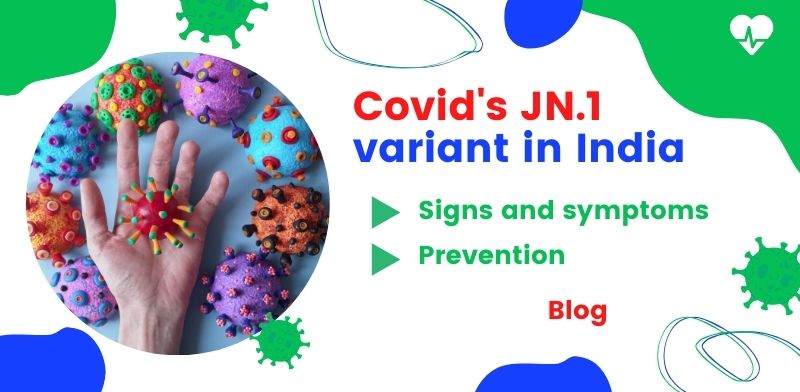
Why pest control is important in the commercial Industry?
The newest and heavily mutated muted strain of COVID-19, known as JN.1 is growing so fast nowadays in the US. Compared to Pirola, JN.1 contains a single mutant in the spike protein. In India On December 8, it was reported in Karakulam, in the Thiruvananthapuram, Kerala. Almost 15 cases of the COVID-19 JN 1 variant in India have been reported in Goa. This variety has now been detected in the US, China, and India. Around the world, the discovery of this novel strain has generated curiosity and worries.
Is JN.1 variety reason for worry?
Although the JN.1 variety may not be a reason for concern, India has seen an increase in the number of infections, 252 new infections were registered nationwide in the week ending December 17. There has been a significant increase between 125 and 59 a week ago.
The fact that this virus, a subvariant of BA.2.86, was first discovered in Kerala, India, highlights the importance of being vigilant. Genome sequencing was used to diagnose Kerala’s instance, and as of now, there have been no documented hospital admissions or serious symptoms, allaying any immediate concerns.
Five indicators indicate when a COVID-19 case gets severe.
- Are there any recent mutations and cases of clustering in a particular area?
- The infection is becoming more severe.
- The Covid-19 symptoms have changed.
- Hospitalisation rates are rising
- The rate of death is rising.
What are the signs and symptoms of the COVID-19 JN.1 variant?
Most cases thus far have been quite minor. These symptoms are similar to those of the flu and other respiratory infections. The elderly who are above 60 years old and those with low immune systems, diabetes, hypertension, pregnant mothers, and infants are at risk for serious illness.
- Fever: The most typical symptom is fever, which can vary in intensity from a low-grade fever to a high-grade fever.
- Cold: Another typical symptom is a runny nose or nasal congestion, which can often include sore throat and sneezing.
- Cough: This might be a productive cough that produces mucus or a dry cough.
- Headache: This might be a moderate headache or something more serious.
- Body or muscle aches: Body pain or more pain in specific parts of the body.
- Fatigue: This might vary from a slight sense of weariness to utter exhaustion.
- Taste or smell loss: Moderate gastrointestinal symptoms, and loss of taste or smell.
- Loose movements: Digestive symptoms might include loose motions or also may be diarrhea.
- Shortness of breath: Breathlessness can strike certain people from time to time.
What are the prevention you need to take?
- Isolate yourself: The greatest way to protect yourself from this life-threatening virus is early discovery and swift isolation. You must isolate yourself and get checked if you experience any of these worrisome symptoms. Ignoring the symptoms like a common cold might have detrimental effects on your family members and that can spread to communities.
- Use Mask: Wearing a mask sensibly is still a very effective technique to protect others and oneself in busy areas or circumstances when keeping a physical distance is challenging.
- Keep Social Distance: Keep a physical distance of six feet or more between you and other people, especially if they are unvaccinated or suffering from fever or cold.
- Maintain a Healthy Diet: Consume a balanced diet, get at least 30 minutes of exercise each day, and take your vitamin C and D supplements as prescribed by your doctor.
- Hand Hygiene: Use an alcohol-based hand sanitizer that contains at least 60% alcohol, or wash your hands often with soap and water for at least 20 seconds..
- Vaccination and boosters: Getting vaccinated is the most effective approach to protect yourself against serious disease, hospitalization, and death against COVID-19, especially the JN.1. You need to keep yourself with the updated recommended vaccines.
In conclusion, Prevention is better than cure. Taking preventative measures is enough to shield oneself against the COVID-19 J1 variant in India. You must take protection including social separation, mask use, immunization, and hand cleanliness. There is no need to be concerned about the increasing number of cases because the virus acts similarly to the parent Omicron virus strain. State and Central Governments need to take necessary action To aid in the prevention and control of the illness.

